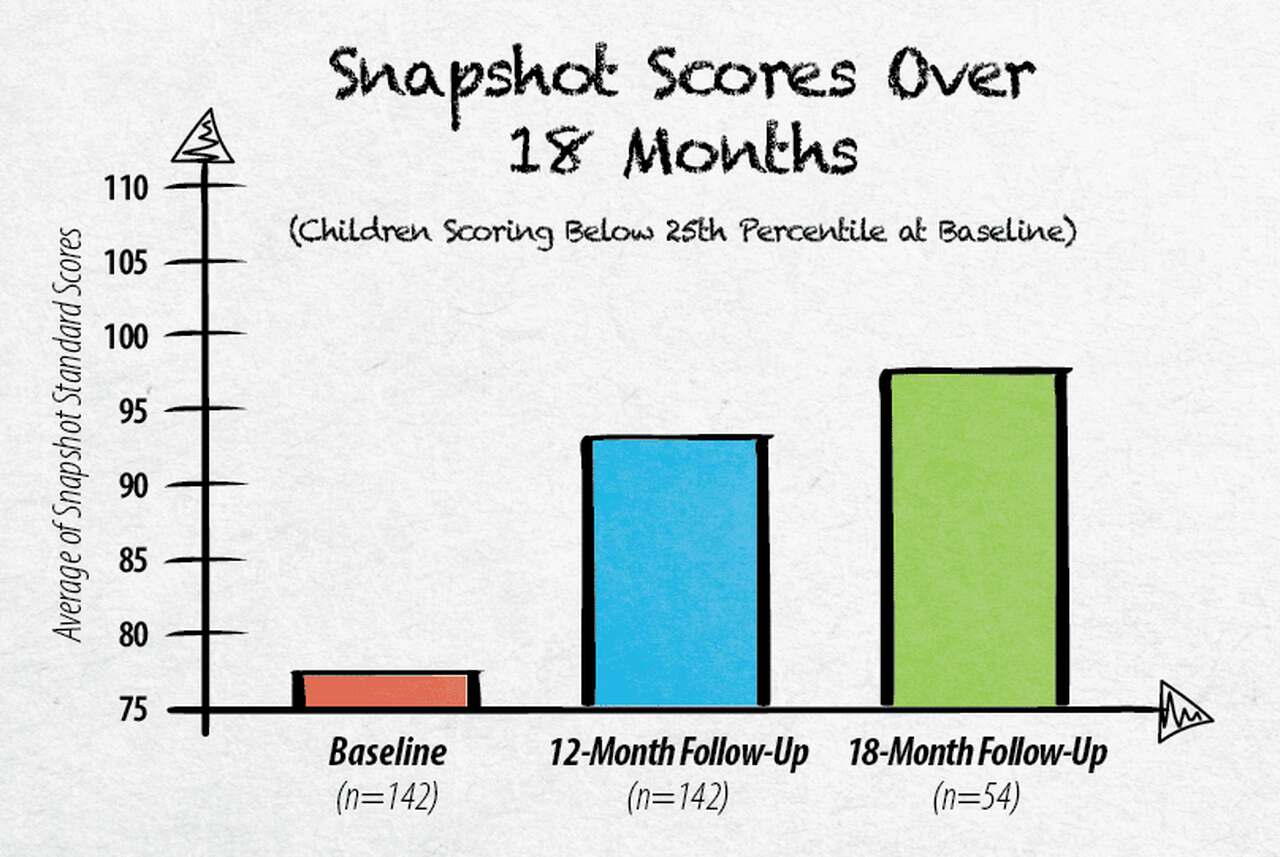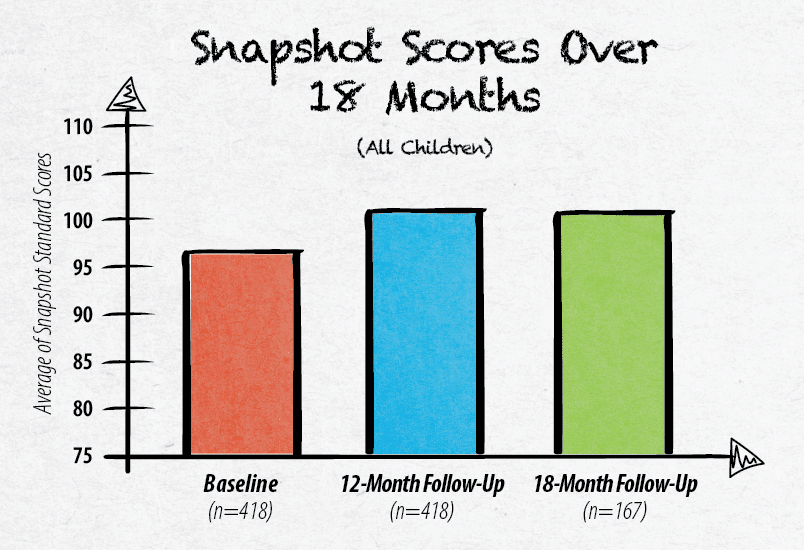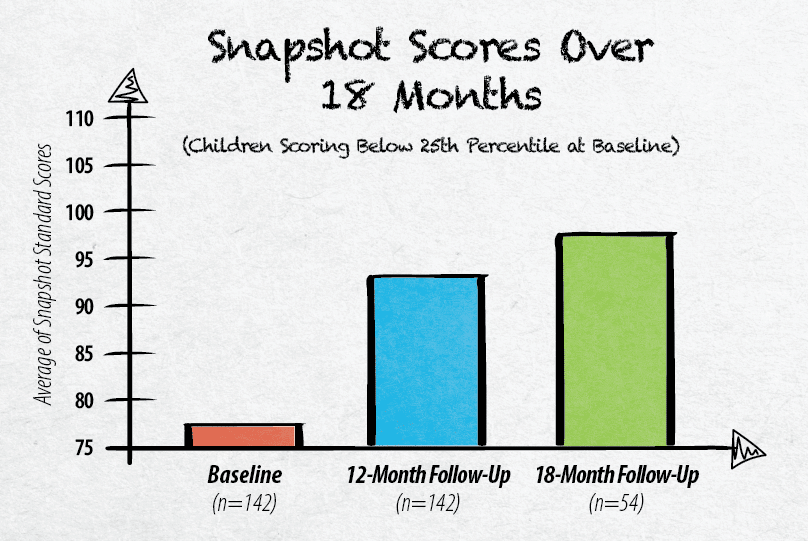Children whose families participated in LENA Start are showing elevated language skills one year after the program, an analysis of longitudinal data shows.
LENA’s research team evaluated data from the Developmental Snapshot, a 52-item, parent-completed questionnaire that assesses expressive and receptive language skills in children up to 36 months. The Snapshot is designed to track changes in children’s language skills over time.
Parents filled out the assessment of their children’s skills at the beginning of the LENA Start program as a baseline. They also completed the Snapshot at the midpoint and end of the program, and then LENA sends follow-up Snapshot to parents via text message every six months after graduation.
Data show a majority of children began LENA Start with slightly below-average language skills, but made significant gains during the course of the program, which were sustained 12 months later. Preliminary analysis of children at the 18-month follow-up indicate that the elevated scores may persist even longer.
[quote]
Children who began LENA Start with the lowest language skills, originally scoring in the bottom quartile, showed the most significant gains. Their scores increased by 26 percentile points from the baseline to the evaluation a year later, usually about 9 months after their caregivers completed the program.
“We controlled for age with standard scores, so these results are about language skills independent of what would be expected simply as a result of increases in age,” Gilkerson said.
These results are an exciting complement to a recent third-party evaluation of LENA Start, which measured changes in families who participated in the program compared to a matched comparison group that did not. That study found that parents increased how much they spoke to and with their children over the course of the three-month class, and children vocalized about 50 times more each week during the program than their peers.
The research team plans to continue collecting follow-up data and evaluate results every six months, using a larger sample each time, to see if the gains remain consistent.





